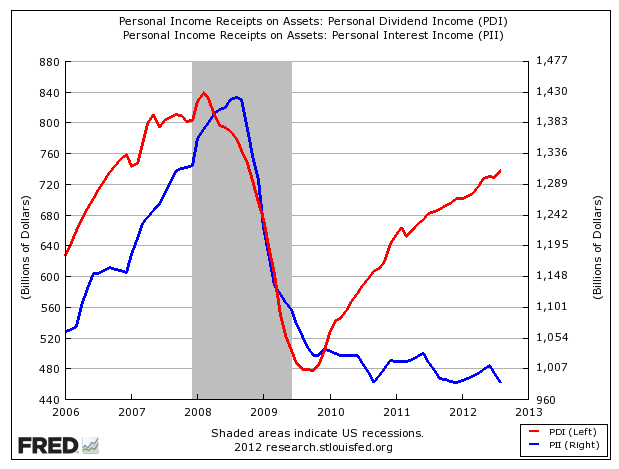Warren Buffett, 84, is by far the greatest investor of all time in my opinion.
His way of thinking, perseverance, and tough negotiation skills are all qualities that set him apart from everybody else.

The Bet
When Buffett turns 87, he will likely receive $1 million from Protégé Partners, LLC.
This time though the money won’t come as a result of one of his many brilliant investment decisions. Instead, it will come from a simple Vegas-like bet he made back in 2008.
Protégé Partners bet Buffett that over a ten-year period the S&P 500 Index would underperform select portfolios from five hedge funds.
High Fees
Buffett, who has long argued that the fees hedge funds command are onerous, bet that the returns from a low-cost S&P 500 index fund would beat the results delivered by the five funds that Protégé selected.
Each side put up roughly $320,000. The total funds of about $640,000 were used to buy a zero-coupon Treasury bond that will be worth $1 million at the bet’s conclusion in 2018.
The $1 million will then be donated to a charity. If Protégé wins, it has designated that the money be given to Absolute Return for Kids (ARK), an international philanthropy based in London.
Charities
If Buffett wins, the intended recipient is Girls Inc. of Omaha, whose board members include his daughter, Susan Buffett.
Protégé partners managed around $3.5 billion at the time of the bet. Ted Seides, and two other men, CEO Jeffrey Tarrant, and Scott Bessent are partners.
Each has a strong investment background, and two of the three have worked with well-known market practitioners.
Seides learned the world of alternative investments under Yale’s David Swensen. Bessent worked with both George Soros and short-seller Jim Chanos.
Active Funds
In a recent interview, the president of Protégé Partners, Seides, said the selected funds were doing quite poorly.
In fact, the S&P 500 fund run by Vanguard that Buffett is betting on rose more than 63%, while hedge fund’s select portfolios have only returned 20% after fees.
When the two sides made their respective cases for why they would win, Buffett noted that active investors incur much higher expenses than index funds in their quest to outperform the market.
These costs only increase with hedge funds, or a fund of hedge funds, thus stacking the deck even more in his favor.
“Funds of hedge funds accentuate this cost problem because their fees are superimposed on the large fees charged by the hedge funds in which the funds of funds are invested,” Buffett argued at the time.
Track Record
A number of smart people are involved in running hedge funds, but it turns out that you don’t need to be brilliant to do well in the stock market.
In fact the smarter you are, the greater your risk of making bad overly-confident calls.
Last December, the S&P Dow Jones Indices published “The Persistence Scorecard” which measured whether outperforming fund managers in one year can continue to outperform the market going forward.
“Out of 681 funds that were in the top quartile as of September 2012, only 9.8% managed to stay in the top quartile at the end of September 2014,” the report noted.
Based on data provided by Morningstar Direct, fewer than 20% of actively managed U.S. stock funds beat their benchmarks last year, and those that did managed to do so by only 180 basis points on average.
Billionaire Investors
Greggory Warren, CFA Senior Stock Analyst from Morningstar’s Ultimate Stock-Pickers said in March of this year: “Our top managers did not fare much better, with only one of the four fund managers that we track beating the market by more than 180 basis points last year. “
Billionaire Hedge Fund managers also got it wrong in 2014.
Only a few of the 20 billionaire investors tracked by iBillionaire performed above the +15.30% gain posted by the S&P 500 in 2014. In aggregate the iBillionaire index climbed +11.67%, underperforming the S&P 500.
Search for Alpha
So why does this matter? Why can’t hedge funds outperform the market or even deliver alpha?
This is the same question The Teacher Retirement System of Texas and MetLife, Inc. are asking.
Hedge fund managers, who are among the highest paid managers on Wall Street, have come under pressure from clients to adjust agreements since the 2008 financial crisis.
Pushing Back
Traditionally, the firms charged investors 2 percent of assets as a management fee along with 20 percent of profits as an incentive.
Despite the pressure, many firms continue to stick to the “2 and 20” model, and some management fees are as high as 4 percent with a 27 percent cut of profits.
As hedge funds trail the Standard & Poor’s 500 Index for the sixth straight year, some clients have complained that managers still provide little information about their holdings and tie up their investors’ cash while lagging behind benchmarks.
The California Public Employees’ Retirement System said in September it would divest its $4 billion from hedge funds after officials concluded the program couldn’t be expanded enough to justify the costs.
Buffett’s Insight
Warren Buffett knows all this, he knows how Wall Street operates. For him, it was a no-brainer to think that a simple index fund could out-perform most hedge funds out there.
Hedge funds manage the money in a typical American’s 401K and other retirement plans. They don’t get paid based on performance. Instead, they are paid based on the amount of money they manage regardless of gains or loses.
They are also willing to take on more risk because they don’t have anything at stake. It’s not their money.
Here’s my opinion: The next time you are considering an investment option, look for funds with low or no management fees.
Also, search for funds that are managed by people whose personal capital is also invested in the fund.
Portfolio Performance
The return of the S&P 500 in February 2015 was 5.49%, as compared with 6.86%, net of fees, for my Dividend Paying Large Caps portfolio.
Gainers
In February, Lukoil (LUKOY), JC Penney (JCP) and Adidas (ADDYY) performed well. They were up 20%, 16.9% and 12.8%, respectively. Lukoil benefited from the ceasefire deal reached with Ukraine in January.
JC Penney it is not out of the woods yet, but revenue have stopped declining. Adidas benefited from the good news out of Europe, as well as the news that Adidas is actively searching for a new CEO.
Another stock that held nicely in February was Pfizer (PFE).
Despite losing the exclusive patent rights to some of its most profitable drugs like Viagra and Lipitor in recent years, Pfizer continues to expand its business internationally, with particular success in China.
Finally, the last gainer in February was COPA Holdings (CPA). In my opinion, Copa Holdings is ideally positioned to benefit from growing passenger air traffic in Central and South America.
The company’s operational history is excellent, with some of the best “on time” statistics and safety records in the industry.
Losers
In February, my worst performing stock was Ralph Lauren (RL). Ralph Lauren Corporation’s stock suffered the biggest one-day plunge in its history on February 4th after the apparel company blindsided investors with a disappointing fiscal third-quarter report and outlook.
Another company underperforming the market in February was Intel (INTC). As I mentioned in one of my previous articles, Intel is not about computers, it is about wearables.
I expect this was a small bump in the road, and anticipate the company will continue to do well over time.
Acquisitions
In February, I added two positions to my portfolio: Priceline (PCLN) and Expedia (EXPE).
Both are companies that I believe will benefit extensively from industry consolidation, the good health of the travel industry in 2015, and the natural migration to new technologies. More on that here.
Liquidations
In February, I sold Bed Bath & Beyond (BBBY), a great company, but the stock was flying too high. It was time to sell.
Photo Credit: Donkey Hotey via Flickr Creative Commons
The investments discussed are held in client accounts as of March 12, 2015. These investments may or may not be currently held in client accounts. The reader should not assume that any investments identified were or will be profitable or that any investment recommendations or investment decisions we make in the future will be profitable.



